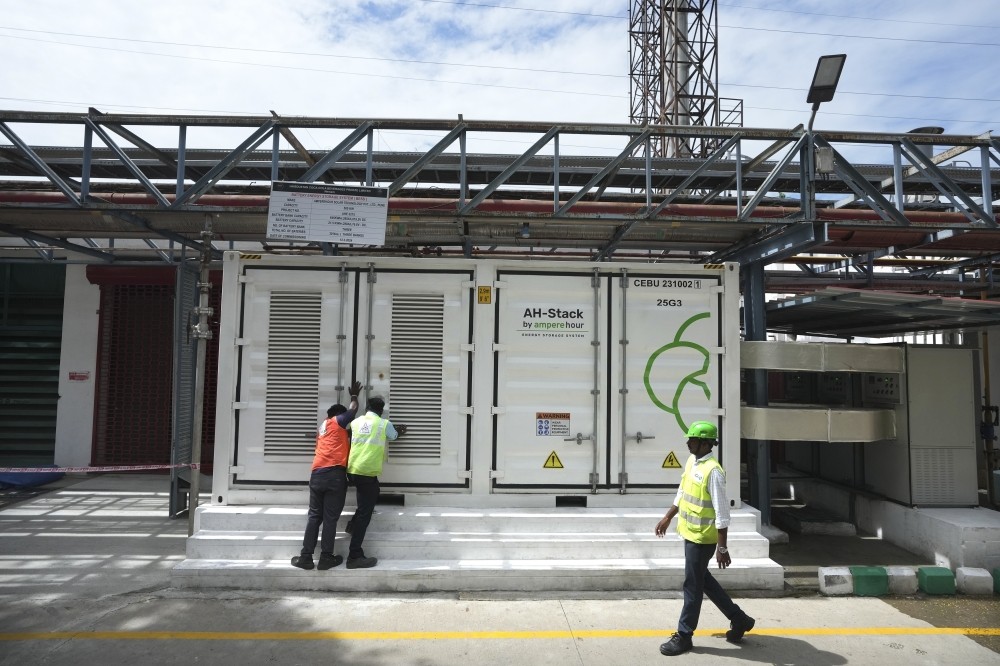21/07/2024
21/07/2024

BENGALURU, India, July 21, (AP): At a Coca-Cola factory on the outskirts of Chennai in southern India a giant battery powers machinery day and night, replacing a diesel-spewing generator. It's one of just a handful of sites in India powered by electricity stored in batteries, a key component to fast-tracking India’s energy transition away from dirty fuels.
The country's lithium ion battery storage industry - which can store electricity generated by wind turbines or solar panels for when the sun isn’t shining or the wind isn’t blowing - makes up just 0.1% of global battery storage systems. But battery storage is growing fast, with around a third of India's total battery infrastructure coming online just this year.
"Our orders are growing exponentially,” said Ayush Misra, CEO of Amperehour Energy, the company that installed the batteries at the Chennai factory. "It’s a really exciting time to be a battery storage provider."
India currently has around 100 megawatts of storage capacity from batteries, with another 3.3 gigawatts of clean energy storage coming from hydropower. The Indian government estimates that the country will need about 74 gigawatts of energy storage from batteries, hydropower and nuclear energy by 2032, but experts think the country actually needs closer to double that amount to meet the country's energy needs.
Some customers are still wary of using battery technology for storage, and the storage systems can be seen as more expensive than the more commonly used coal. The supply chain of batteries is also concentrated in China, meaning the sector is vulnerable to geopolitical volatility.
But markets don’t think customers will be hesitant about batteries for long, with major Indian businesses announcing significant investments in the industry.
In January this year, energy giant Reliance Industries said it will build a 5,000-acre factory in Jamnagar, Gujarat. And in March, Goodenough Energy said it will spend $53 million by 2027 to set up a 20 million kilowatt-hour battery factory in the northern region of Jammu and Kashmir.
Alexander Hogeveen Rutter, an independent energy analyst based in Bengaluru, said upping storage capacity should be done alongside ramping up renewables.


